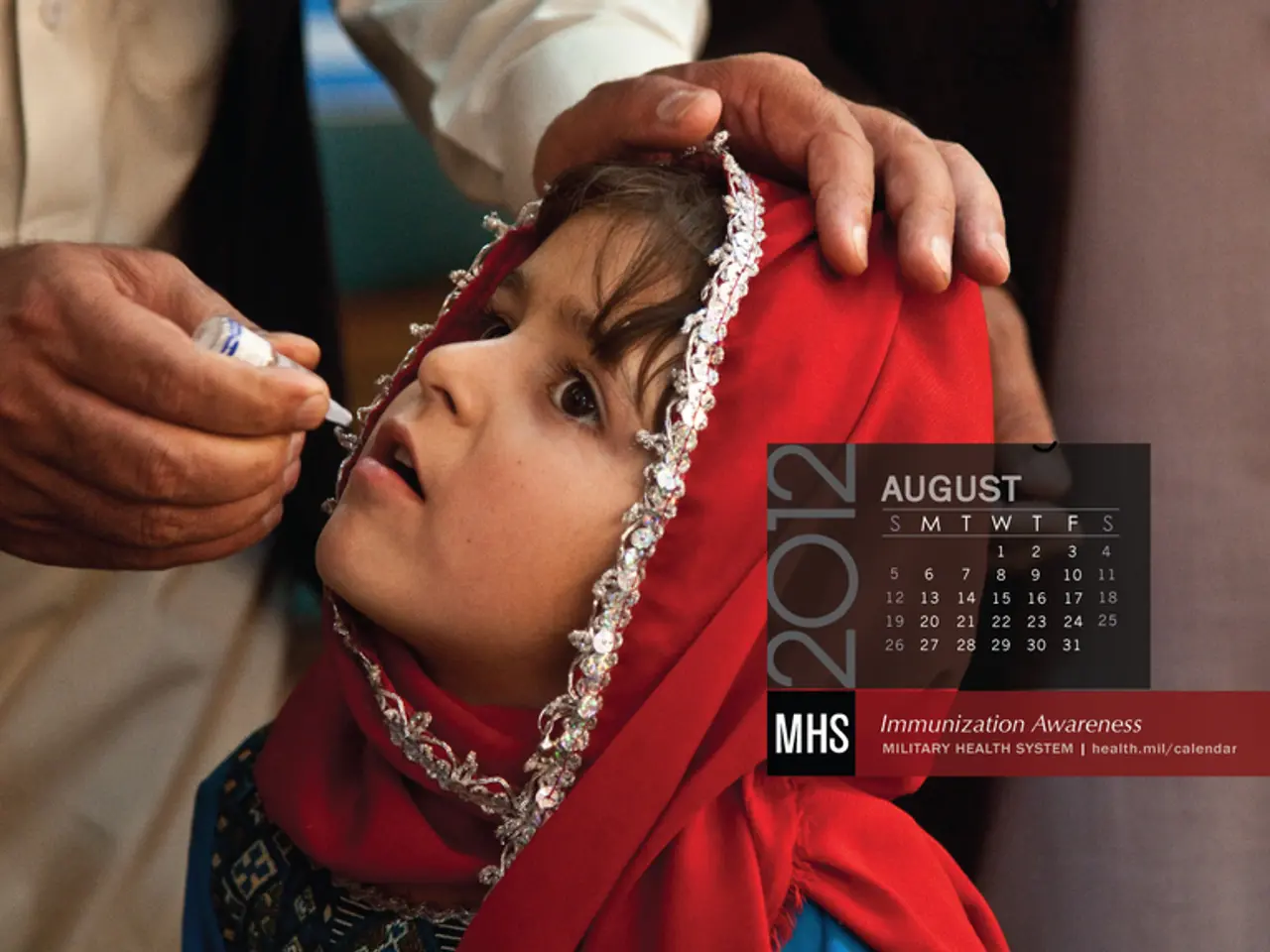Advisory panel suggests stricter regulations on MMRV immunizations, in accordance with Kennedy's recommendation
In a significant move, the Advisory Committee on Immunization Practices (ACIP) has recommended that the MMRV vaccine (combination shot for measles, mumps, rubella, and chickenpox) should not be given before age 4. Instead, children in this age group should receive separate vaccines - one against MMR and another for varicella, or chickenpox.
The decision, which was voted 8-3 with one member abstaining, follows concerns about a slight increase in feverish seizures after the first dose of the MMRV vaccine. Dr. Richard Haupt, a vice president at Merck, which makes the MMRV vaccine ProQuad, explained the current CDC recommendations stem from these concerns.
Medical experts agree that feverish seizures associated with the first dose of the MMRV vaccine are not linked to brain function or school problems. However, Dr. Evelyn Griffin, during the discussion, questioned, "Are we asking our babies to solve an adult problem?"
The ACIP, the authority responsible for developing recommendations on the use of already approved vaccines, recommended by the Centers for Disease Control and Prevention, last dealt with this issue in 2009. At that time, it said either the combination shot or separate MMR and chickenpox shots were acceptable for the first dose, but that separate doses were generally preferred.
The panel's focus on the MMRV vaccine was largely on rare instances of feverish seizures associated with the first dose, given to kids between ages 1 and 2. Meanwhile, the ACIP put off a vote on hepatitis B shots given to infants on the day they are born.
The hepatitis B vaccine was first licensed in the U.S. in 1981. Approximately 2.4 million people in the U.S. are estimated to have hepatitis B. In adults, the virus is primarily spread through sex or sharing needles during injection-drug use, but it can also be passed to a baby from an infected mother.
Following the 2005 recommendation, hepatitis B cases among infants fell from 5,494 cases per year in 2005 to 2,214 cases in 2023. The ACIP recommended a dose within 24 hours of birth for all medically stable infants who weigh at least 4.4 pounds (2 kilograms) in 2005.
Some committee members questioned whether babies born to moms who test positive for hepatitis B are the only ones who truly need a vaccine in the first day of life. Half of the infected individuals are unaware of their infection, and up to 90% of infected infants go on to have chronic infections. The infant shots are 85% to 95% effective in preventing chronic hepatitis B infections.
The U.S. Health Secretary Robert F. Kennedy Jr.'s vaccine advisory committee also recommended new restrictions on the MMRV vaccine. Many of the studies discussed during the meeting were more than a decade old, and some doctors and public health experts are not aware of any new safety data that would explain the revisiting of those vaccination recommendations.
The panel's recommendations, if accepted by the CDC director, are widely heeded by doctors and guide vaccination programs. Today, 85% of kids receive separate doses for the first round of vaccinations. The ACIP is expected to decide whether to recommend that some babies can wait a month for hepatitis B shots on Friday.
Read also:
- New York joins a multistate health coalition to counteract chaos in federal vaccine distribution efforts
- Enhanced Iron Absorption in Female Health: Biotechnology Developed Plant Protein Outperforms Iron Supplements in Fermentation
- Controversy Surrounding Epstein Heats Up in Washington; Trump Endorses Homelessness Executive Order; More Events Reported
- Prevent the exploitation of our public health care systems for financial gain







